Tax Compliance Series | Viewing the Tax Compliance of Brokerage Institutions from the New Regulations of Radio and Television
On May 30, 2022, the State Administration of Radio and Television issued a notice on the Administrative Measures for Brokerage Agencies in the Field of Radio, Television, and Online Audiovisual Services. Article 1 of this article clarifies that the purpose of these measures is to "regulate brokerage activities in the field of radio, television, and online audiovisual services, strengthen the management of brokerage institutions and personnel, and clarify the rights and obligations of brokerage institutions and personnel." So, as an "institution that provides contract signing, promotion, agency, and other related activities for actors, guests, hosts, network anchors, and other personnel, how should it do a good job of tax compliance in accordance with the provisions of this document? Here, we take the reader to explore.
1、 Common tax risk points of brokerage institutions
(1) Fictitious business, transferring income to tax depression
Brokerage agencies, acting as actors, guests, hosts, network anchors, and other personnel (hereinafter referred to as "entertainers"), have signed contracts with their partners to reduce the tax burden on entertainers, fabricate businesses, and transfer income to multiple enterprises. In addition, using the tax depression fiscal return policy, they are trying to reduce the tax burden on the brokerage agencies while helping them achieve the goal of reducing personal income tax burden.
From several typical tax cases reported by the State Administration of Taxation, it can be seen that the act of transferring income from fictitious businesses does not belong to the mode of tax evasion specified in Article 63, paragraph 1, of the Tax Administration Law, but such acts have been recognized as "tax evasion" in practice.
Brokerage agencies, as withholding agents, assist or actively assist entertainers in reducing individual income tax in the form of fictitious business or income transfer, which can also bring equal tax risks to themselves.
(2) Sign yin and yang contracts and adopt cash or private account transactions
Although the tax risks of Yin Yang contracts have been repeatedly presented in typical cases reported by the State Administration of Taxation, in the entertainment industry, this behavior is still repeatedly prohibited. As a party to the contract, the brokerage agency and the brand and producer use a low amount "Yang" contract as a formal contract, and record the amount presented in the Yang contract into the account, in addition to obtaining other funds through personal accounts or cash.
According to the provisions of Paragraph 1, Article 63 of the Tax Administration Law, such acts by brokerage institutions constitute "underreporting of income" for themselves, which constitutes tax evasion; For entertainers, there is also a tax risk of "tax evasion" due to insufficient declaration. Brokerage agencies should indeed put an end to this behavior.
(3) Failing to fulfill the withholding obligation according to law and "underreporting income" for entertainers
According to the second paragraph of Article 25 of the Tax Collection and Management Law, "Withholding agents must truthfully submit tax withholding and collection reports and other relevant materials required by the tax authorities to be submitted by the withholding agents in accordance with the provisions of laws and administrative regulations or the declaration deadline and declaration content determined by the tax authorities in accordance with the provisions of laws and administrative regulations." In practice, Some brokerage institutions have not truthfully filed tax returns for their contracted entertainers for two reasons (1. for the purpose of the brokerage institution's own maximum economic interests; 2. for the purpose of allowing entertainers to obtain more income). This behavior also brings tax risks to both the entertainer and the brokerage agency.
It is worth noting that when a brokerage agency intentionally underdeclares the fully withheld individual income tax of entertainers for the purpose of its own maximum economic interests, the brokerage agency itself directly constitutes "tax evasion.".
(4) Declare the nature of income conversion for entertainers
There are two ways for entertainers to cooperate with brokerage agencies, one is a labor relationship, and the other is a labor relationship. According to relevant laws and regulations such as the Individual Income Tax Law, brokerage agencies should declare the income earned by performers due to these two relationships as income from labor remuneration and wages and salaries. Both types of income belong to comprehensive income. According to the calculation method of excess progressive tax rate, when the income of entertainers is too high, the maximum applicable tax rate is 45%. Therefore, brokerage agencies often illegally entrust third-party units or transfer income to partnerships to declare "business income" items for entertainers. As the maximum applicable tax rate for business income is 35%, brokerage agencies use this to help entertainers achieve the goal of reducing their tax burden.
Referring to the case of Zhang Heng, if a brokerage institution provides convenience for performers and causes underpayment of taxes, the tax authorities have the right to impose administrative penalties on the brokerage institution in accordance with Article 93 of the Detailed Rules for the Implementation of the Law of the People's Republic of China on the Administration of Tax Collection.
(5) Cost accounting is chaotic, and brokerage agencies cannot accurately measure costs
The contract between a brokerage firm and an entertainer usually stipulates that the entertainer's income is "the percentage of the balance after deducting project costs.". In practice, project costs are often affected by the inability to obtain legal invoice vouchers. For example, it is difficult to obtain invoices to offset the makeup and promotional expenses of performers due to direct payments to natural persons. On the one hand, it affects the cost deduction of the brokerage agency itself, and on the other hand, it affects the income of the entertainers. If a brokerage institution obtains invoices that do not meet the deduction criteria in order to offset costs, tax law risks will arise.
2、 Key points of tax compliance for brokerage institutions
Article 15 of the Measures for the Administration of Brokers in the Field of Radio, Television, and Online Audiovisual Services stipulates that brokers and brokers in the field of radio, television, and online audiovisual services shall pay taxes in accordance with the law, truthfully file tax returns, and fulfill their obligations to pay taxes and withhold payments in accordance with the law. Brokerage agencies and personnel should urge, remind, and assist clients in paying taxes in accordance with the law, and consciously resist non-standard signing methods aimed at or likely to lead to tax evasion. Based on the "Model Text of Actor Employment Contract (Trial)" issued by the State Administration of Radio and Television of China on May 11 and the above analysis, the tax compliance of brokerage institutions should achieve the following:
(1) Fulfill the obligation of withholding and paying according to law, and beware of "tax avoidance" becoming "tax evasion"
Brokerage agencies often cooperate with so-called "tax pooling" intermediaries, which are also the focus of current tax inspections. This type of intermediary instructs brokerage institutions to reduce their tax burden by transferring income to individual or partnership enterprises in tax depressions, or instructs brokerage institutions to declare entertainer income after converting the nature of the income. Currently, such acts are characterized as "tax evasion" by the tax authorities. Therefore, brokerage agencies should declare compliance for performers in accordance with the law, and eliminate illegal activities.
(2) Strict contract management for strong evidence support during tax inspections
Brokerage agencies that accept the entrustment of entertainers to sign contracts should pay attention to the following contract management:
First, with reference to the "Model Text of the Actor Employment Contract (for Trial Implementation)" released by the State Administration of Radio and Television of China on May 11, when a brokerage institution accepts the commission of an entertainer to sign a contract externally, the entertainer should also be listed as the contracting party in the contract, and the agreed fee in the contract should be pre tax income.
Secondly, if there is a change in the contract amount, a supplementary agreement should be signed in a timely manner to prevent the contract amount from being inconsistent with the actually received amount and the tax declaration amount.
Third, eliminate Yin Yang contracts and refuse to use private account transactions to prevent violations of Article 63, paragraph 1, of the Tax Administration Law from being characterized as tax evasion.
Fourth, brokerage agencies should classify and manage the contracts of their contracted entertainers, establish separate files for each entertainer, and regularly compare and compound the contracts, actual income, and tax declaration income of the entertainers.
(3) Save the relevant pre tax deduction vouchers for the project to guard against income tax risks
Article 7 of the announcement of the State Administration of Taxation on the issuance of the "Measures for the Administration of Pre-tax Deduction Certificates for Enterprise Income Tax" stipulates that "enterprises should keep for future reference information related to pre-tax deduction vouchers, including contract agreements, expenditure bases, payment vouchers, etc., to verify the authenticity of pre-tax deduction vouchers." Therefore, brokerage institutions should pay attention to the management of pre-tax deduction vouchers in their daily tax management, And manage each externally signed project by category, and perform financial management on the income and expenditure of the project to ensure that the amount shared by the entertainer can be clearly accounted for when it is allocated to the entertainer, so as to provide tax returns for the entertainer.
(4) Obtain an invoice that meets the requirements as an input deduction voucher to guard against VAT risks
Article 9 of the Provisional Regulations of the People's Republic of China on Value Added Tax stipulates that "If a taxpayer purchases goods, labor services, services, intangible assets, or immovable property and obtains a VAT deduction certificate that does not comply with laws, administrative regulations, or the relevant provisions of the tax authorities under the State Council, the input tax shall not be deducted from the output tax." Article 19 of the Detailed Rules for the Implementation of the Provisional Regulations of the People's Republic of China on Value Added Tax stipulates that, "The term" VAT deduction voucher "as mentioned in Article 9 of the Regulations refers to special VAT invoices, customs import VAT payment certificates, agricultural product purchase invoices, agricultural product sales invoices, and transportation expense settlement documents. In other words, the vouchers used by brokerage institutions for input deduction must be special VAT invoices obtained based on real business.".
According to relevant laws and regulations, if a brokerage institution obtains invoices that do not meet the deduction criteria, it may result in the transfer of input, the payment of taxes, or criminal liability. Therefore, brokerage institutions should regularly conduct self inspections to ensure that invoices used as deduction vouchers are legal and compliant.
summary
Brokerage agencies that provide contract signing, promotion, agency, and other related activities for actors, guests, hosts, network anchors, and other personnel are the focus of current tax inspections, as well as the focus of their industry supervision. Brokerage agencies should hire professional lawyers to properly manage tax compliance and corporate compliance, and beware of legal risks.
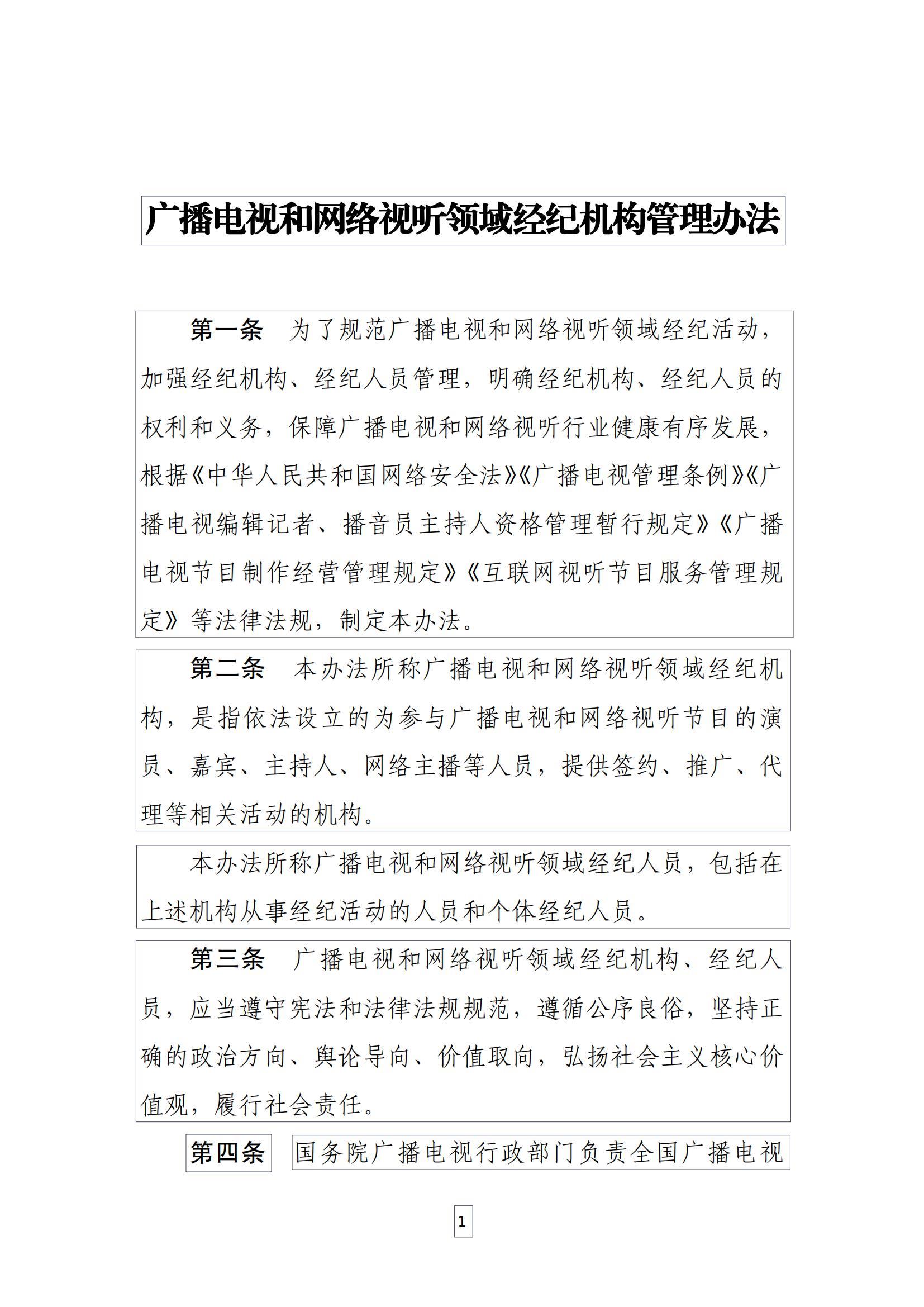
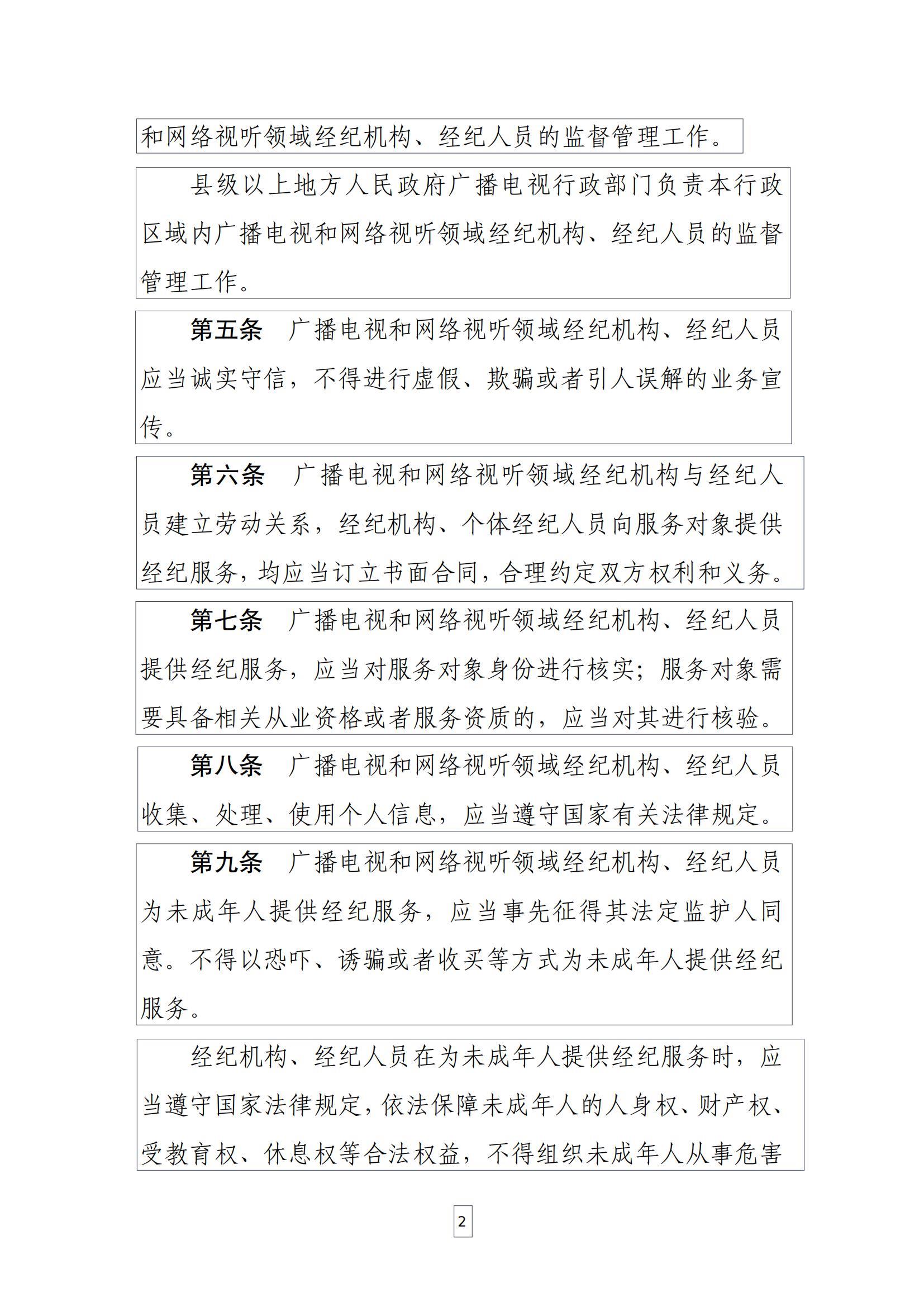
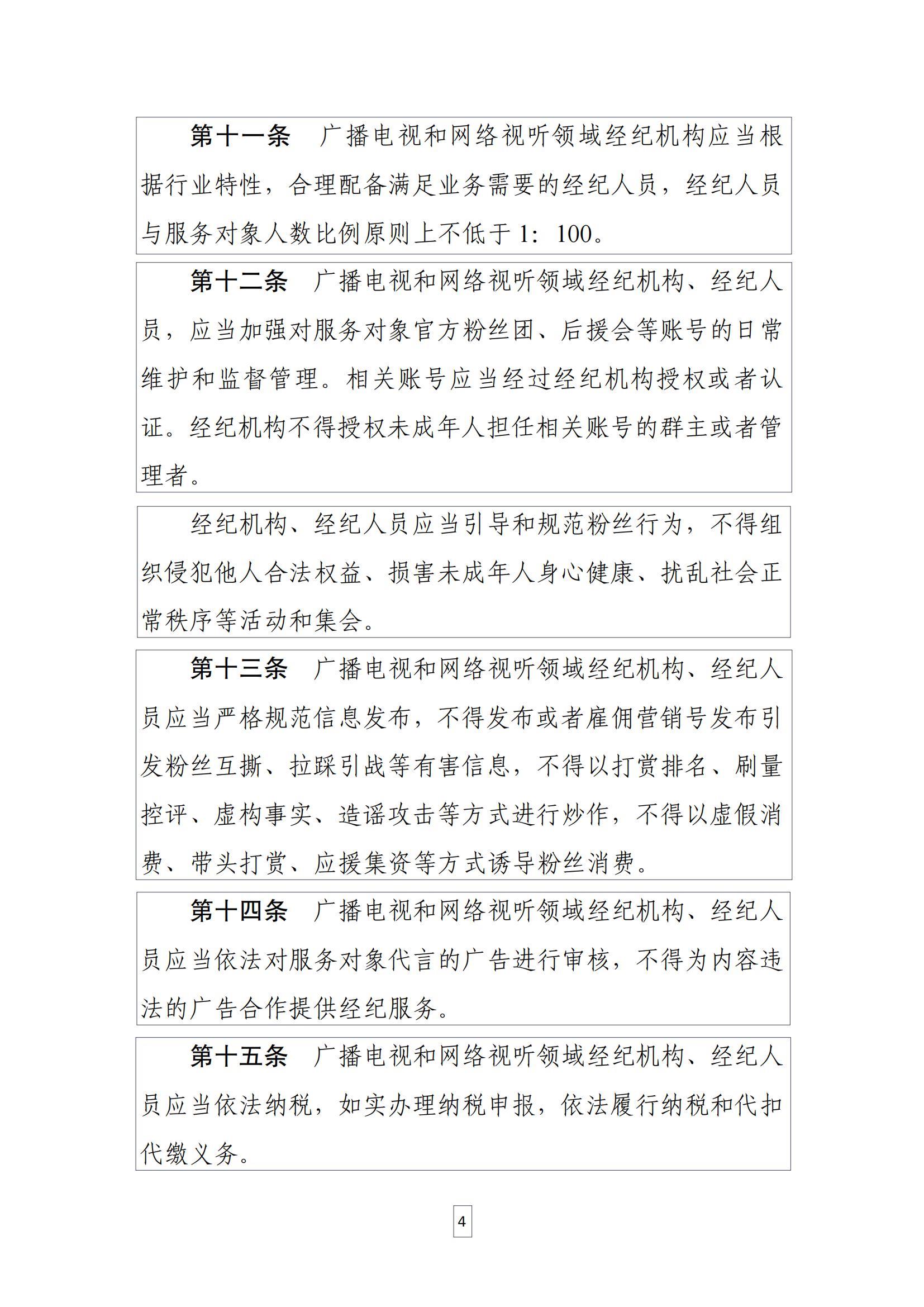
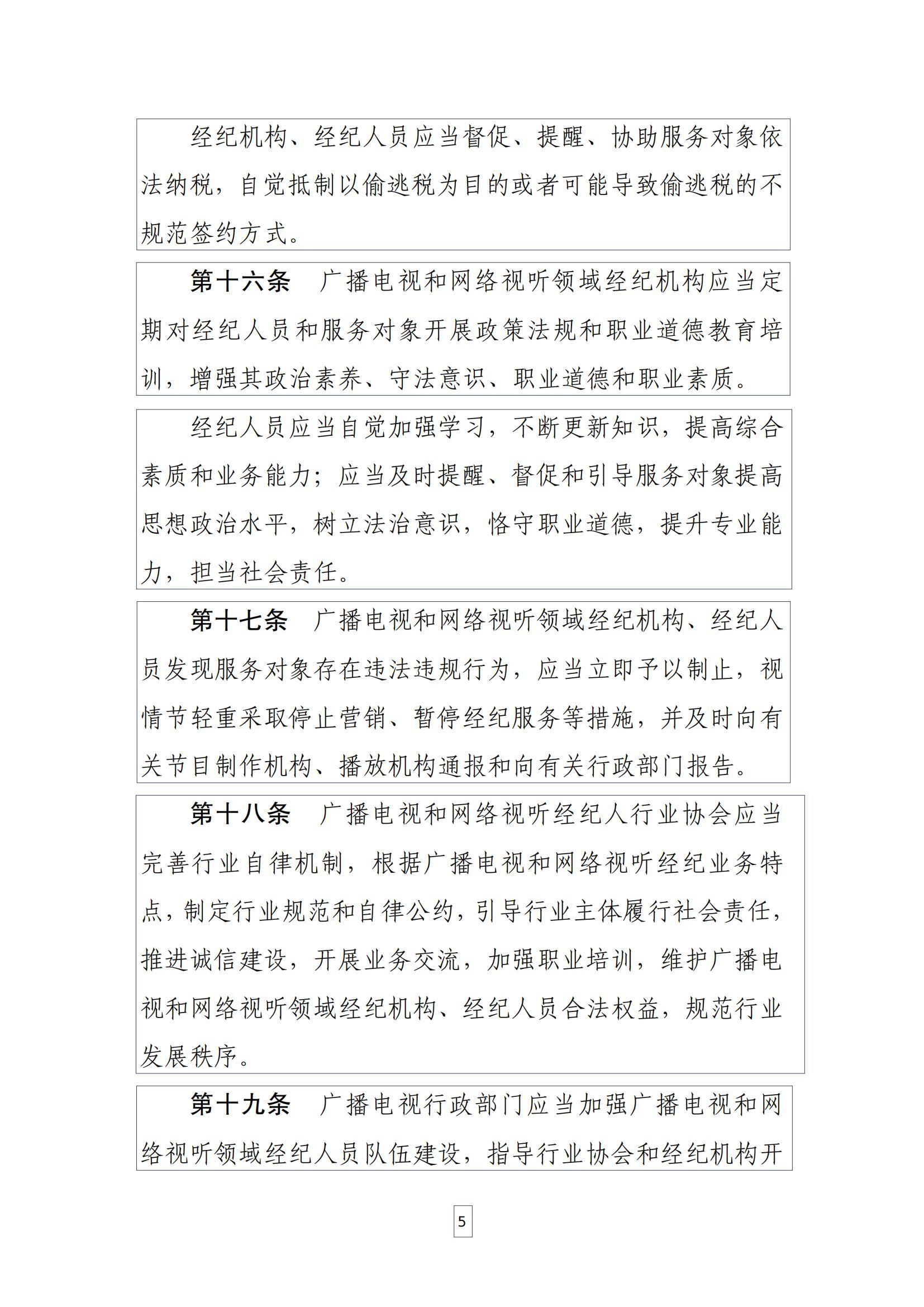
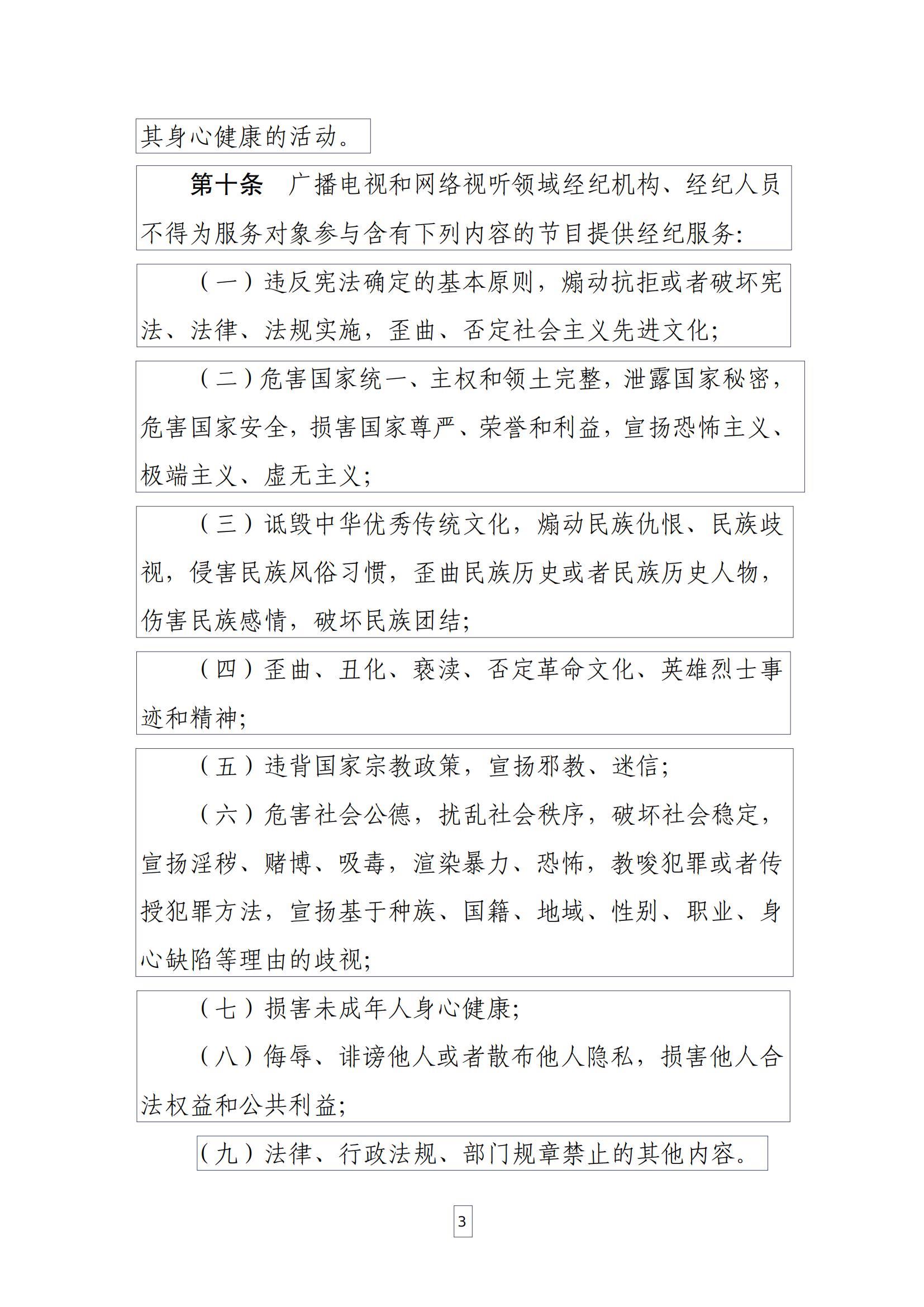
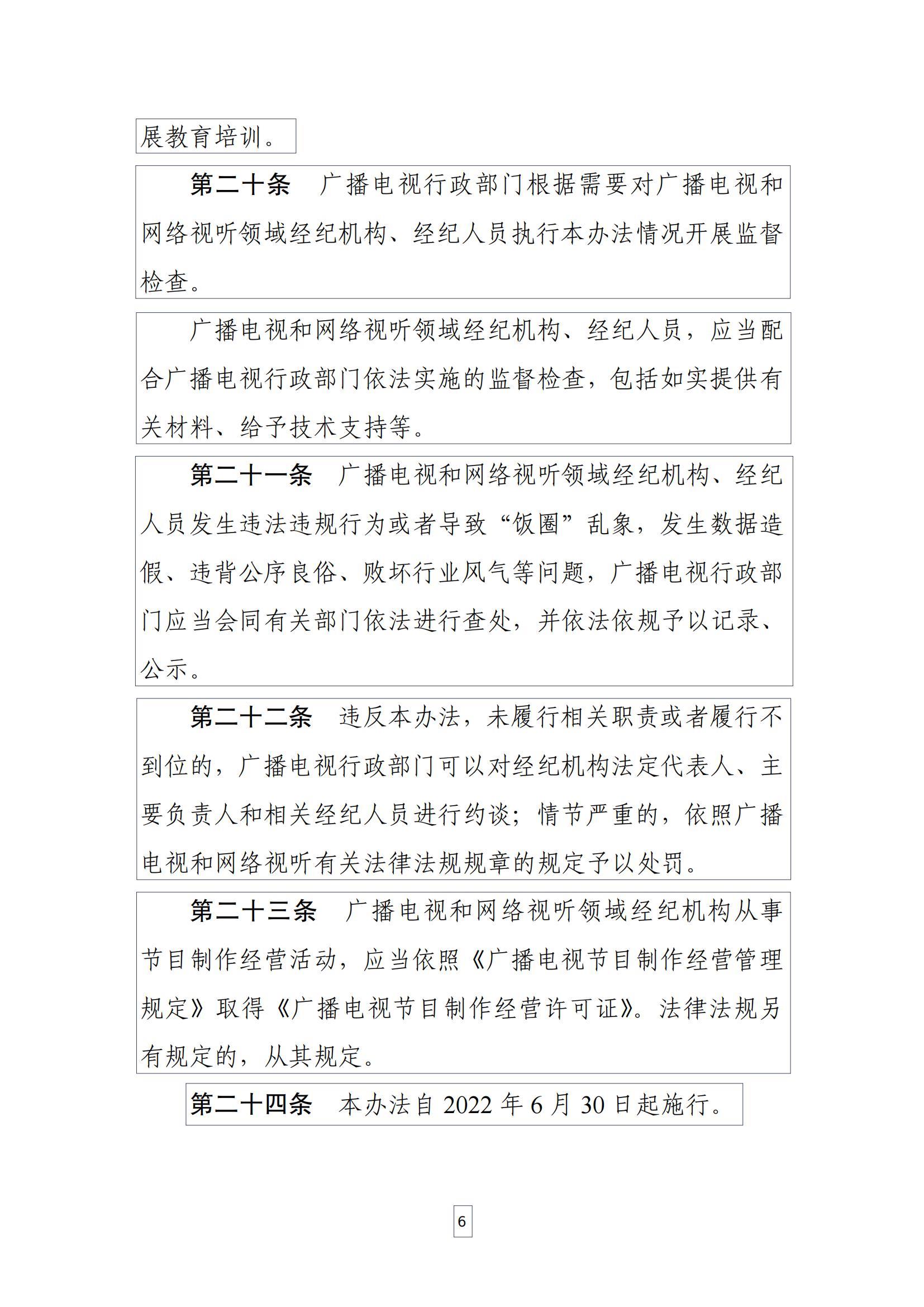
Related recommendations
- Can I get a tax refund if my bet fails? ——Comment on the case of Wang and Shanghai Taxation Bureau's refusal to refund taxes
- How shareholders can withdraw their shares Series 2: Company merger, division, or transfer of major assets
- From the Xiao incident to see the complex impact of spousal reporting - a double-edged sword in divorce proceedings
- Analysis of Criminal Legal Risks in Low altitude Economy and Preliminary Exploration of the Road to Criminal Compliance in Low altitude Economy



